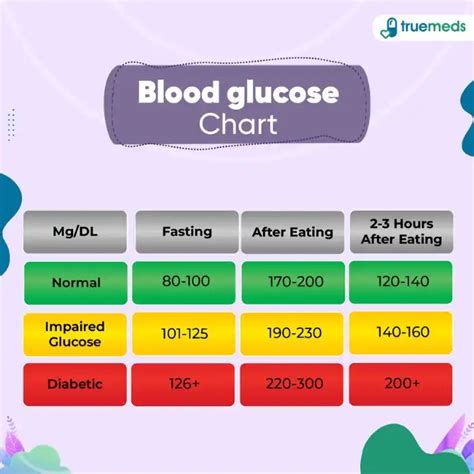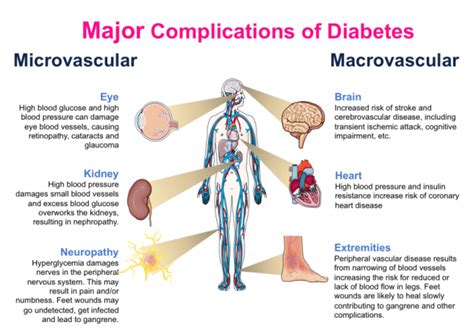Intro
Discover the normal blood sugar range and learn to manage diabetes with healthy glucose levels, monitoring blood glucose, and maintaining a balanced diet to prevent hyperglycemia and hypoglycemia.
Maintaining normal blood sugar levels is crucial for overall health and well-being. Blood sugar, also known as glucose, is the primary source of energy for the body's cells. When we eat, our body breaks down carbohydrates into glucose, which is then absorbed into the bloodstream. The pancreas regulates blood sugar levels by releasing insulin, a hormone that helps cells absorb glucose. In this article, we will delve into the importance of normal blood sugar ranges, the factors that affect them, and provide guidance on how to maintain healthy blood sugar levels.
The importance of normal blood sugar ranges cannot be overstated. When blood sugar levels are too high or too low, it can lead to a range of health problems, including diabetes, heart disease, and stroke. High blood sugar levels can damage blood vessels, nerves, and organs, while low blood sugar levels can cause dizziness, confusion, and even loss of consciousness. Moreover, maintaining normal blood sugar levels is essential for preventing long-term complications, such as kidney damage, blindness, and amputations.
Understanding normal blood sugar ranges is vital for individuals with diabetes, as well as those who are at risk of developing the condition. Normal blood sugar ranges vary throughout the day, depending on factors such as meal times, physical activity, and sleep patterns. The American Diabetes Association (ADA) recommends the following normal blood sugar ranges: less than 100 mg/dL when fasting, and less than 140 mg/dL two hours after eating. However, these ranges may vary depending on individual factors, such as age, health status, and medication use.
What is Normal Blood Sugar Range?

Factors that Affect Blood Sugar Levels
Several factors can affect blood sugar levels, including: * Diet: Consuming high-carbohydrate foods, sugary drinks, and saturated fats can raise blood sugar levels. * Physical activity: Regular exercise can help lower blood sugar levels, while sedentary behavior can increase them. * Stress: Chronic stress can raise blood sugar levels by stimulating the release of stress hormones, such as cortisol. * Sleep: Poor sleep quality and duration can disrupt blood sugar regulation, leading to increased levels. * Medications: Certain medications, such as steroids and certain antidepressants, can raise blood sugar levels.How to Maintain Normal Blood Sugar Levels

Tips for Monitoring Blood Sugar Levels
Monitoring blood sugar levels is essential for individuals with diabetes, as well as those who are at risk of developing the condition. Here are some tips for monitoring blood sugar levels: * Use a glucose meter: A glucose meter is a small device that measures blood sugar levels from a finger prick sample. * Keep a log: Record blood sugar levels, along with the date, time, and any factors that may have affected the reading, such as food, exercise, or stress. * Consult with a healthcare provider: Regularly review blood sugar logs with a healthcare provider to adjust treatment plans and make lifestyle changes.Complications of Abnormal Blood Sugar Levels

Preventing Complications
Preventing complications requires maintaining normal blood sugar levels, as well as managing other risk factors, such as: * High blood pressure: High blood pressure can damage blood vessels, increasing the risk of heart disease and stroke. * High cholesterol: High cholesterol can increase the risk of heart disease and stroke. * Smoking: Smoking can damage blood vessels, increasing the risk of heart disease and stroke.Treatment Options for Abnormal Blood Sugar Levels

Emerging Trends in Blood Sugar Management
Emerging trends in blood sugar management include: * Continuous glucose monitoring: Continuous glucose monitoring systems track blood sugar levels throughout the day, providing real-time feedback and insights. * Artificial intelligence: Artificial intelligence algorithms can analyze blood sugar data, providing personalized recommendations for lifestyle changes and treatment plans. * Personalized medicine: Personalized medicine approaches tailoring treatment plans to individual genetic profiles, medical histories, and lifestyle habits.Conclusion and Future Directions

What are the symptoms of high blood sugar levels?
+Symptoms of high blood sugar levels include increased thirst and urination, blurred vision, fatigue, and slow healing of cuts and wounds.
How can I prevent low blood sugar levels?
+To prevent low blood sugar levels, eat regular meals, avoid skipping meals, and monitor blood sugar levels regularly.
What are the benefits of maintaining normal blood sugar levels?
+Maintaining normal blood sugar levels can reduce the risk of complications, such as heart disease, kidney damage, and nerve damage, and improve overall health and well-being.
We hope this article has provided valuable insights into the importance of maintaining normal blood sugar levels. If you have any questions or concerns, please do not hesitate to comment below. Share this article with friends and family to help spread awareness about the importance of blood sugar management. Take the first step towards maintaining optimal health and well-being by making informed choices about your diet, physical activity, and stress management.
